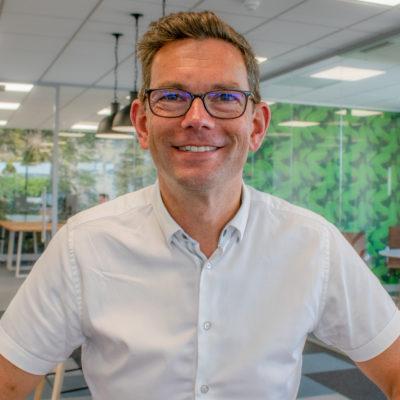Will virtual congress amplify the spread of scientific knowledge?
While the COVID-19 pandemic has the world in ‘lockdown’ mode, and doctors are posting more content on social media than ever, many medical congress meetings are being forced to consider how to run their events in 2020.
Some organisations, such as Diabetes UK, have decided to cancel their 2020 meeting, while others are switching to a virtual format. But is the forced pause in public gatherings a disruptive challenge or opportunity for participants?
“ASCO will deliver the latest cancer science to the global community in this year’s ASCO20 Virtual Scientific Program”, states the American Society of Clinical Oncology. ASCO was among the first major congress organizers to perform a pivot, rebranding its event for a digital format.
The American Diabetes Association (ADA) has also announced a move to a virtual format, marking a huge step forward from its position in 2017 when it tried to ban the online sharing of photos taken during presentations. At the time, healthcare professionals reacted so vocally online that the issue dominated HCP conversations during the first days of Scientific Sessions.
Today, the ADA is positioned for a virtual congress that promises “…innovative opportunities for you to connect with your peers from around the world.”
When I asked some of the most influential online HCPs in cancer treatment what they will miss about not being at ASCO’s meeting in person, and what they look forward to about the virtual setting, their response was unanimous. As doctors chimed in to share their views, it became clear that doctors hold much affection for the live networking environment traditionally created by ASCO, suggesting that the event’s organisers have their work cut out to recreate the energy of past meetings.
Missing the interaction
Gone, of course, is the face-to-face networking that has added life to medical congress meetings in the past. Will in-person peer conversations be replaced by social networking?
Shaalan Beg, MD, Associate Professor in GI Oncology, reflected that the exchange of ideas that takes place through the interaction between friends and colleagues will be tough to replicate in a virtual meeting.
For me, the highlight of the annual meeting is the interaction between friends/colleagues.
That exchange of ideas will be tough to replicate in a virtual meeting.
Hope to meet everyone on #SoMe platforms!@cancerassassin1 @sarah_c_hopkins @drdonsdizon @DrMarkham— Shaalan Beg MD MBA FASCO (@ShaalanBeg) April 22, 2020
Dr. Merry-Jennifer Markham, Chief of the Division of Hematology & Oncology and Associate Professor in the Department of Medicine at University of Florida Health, agreed and said that connecting with people in real life at ASCO meetings is what brings energy to the events.
I agree completely. I love connecting with people in real life at the meetings. And the energy! So much energy and excitement at @ASCO annual meetings.
— Merry-Jennifer Markham, MD, FACP, FASCO (@DrMarkham) April 22, 2020
Meanwhile Clinical Cancer Biologist Emil Lou, MD, described interaction and networking as the “secret sauce” of ASCO meetings, pointing out that “That is how we advance the field of #oncology”.
It is the interactions, networking, exchange of ideas, and collegiality that is the secret sauce of @ASCO meetings. That is how we advance the field of #oncology. Since it has to be virtual this year for #ASCO20, without a doubt leveraging #SocialMedia will be the Major 🔑. pic.twitter.com/pWtiSasyKo
— Emil Lou, MD, PhD, FACP (@cancerassassin1) April 22, 2020
Other doctors joined the conversation, reflecting on how they will miss seeing friends, colleagues, mentees. Indeed ASCO has become not only the major platform for sharing scientific knowledge but, in the digital age, a powerful environment for connecting people in real life. For many, it would have been the only time they saw digital peers in person this year.
I will miss seeing friends, getting together with members of the #Wolfpack @HemOncWomenDocs, running around McCormick, learning, and hugging my mentees.
— Narjust Florez, MD, FASCO (@NarjustFlorezMD) April 22, 2020
In truth what I will miss the most is my wonderful colleagues, including fellow patient advocates pic.twitter.com/G5ywWbrlqz
— Mark Lewis (@marklewismd) April 22, 2020
Doctors who would have travelled to Chicago for the event from further afield will also miss the trip. Sebastian Frees, a Urologist in Mainz, Germany, reflected that besides networking, which he described as “so important in medicine”, he will also miss the taste of Chicago.
For sure the personal interaction. Networking is so important in medicine. Discussing results with your colleagues. Also besides the conference setting. #ASCO20
And to be really honest I will miss the doughnuts and steak houses as well. #Chicago @ASCO #UroSoMe https://t.co/euJU10sNRI— Sebastian Frees (@drsfrees) April 23, 2020
Social networking?
There is, however, positive anticipation among online healthcare professionals about the role that social media will play as an enabler of virtual networking.
“Hope to meet everyone on [social media] platforms!”, said Dr. Beg.
“Since it has to be virtual this year for #ASCO20, without a doubt leveraging #SocialMedia will be the Major Key”, concluded Dr. Lou.
If social media engagement is the closest that HCPs will come to networking during congress events this year, then perhaps there is hope for even better dissemination of knowledge than ever before. Indeed, when I interviewed Gastrointestinal Oncologist Dr. Allyson Ocean last year about her use of social media in pancreatic cancer, she told me how important Twitter is to her for sharing scientific knowledge:
“When I find out a new treatment or any drug that got approved… I tweet it because that means… all my followers will see it immediately. There’s no way I can introduce a subject or article faster than tweeting it out,” she said.
Opportunities for industry?
For pharmaceutical companies, which often invest vast sums into supporting congress events and preparing their research, exhibits and materials for the event, the move to a virtual setting presents a challenge and, potentially, an opportunity. How can industry partners of congress events pivot their own plans to adjust for the virtual setting?
An extended virtual exhibition
ASCO’s exhibit hall has been replaced by virtual exhibits, which will remain available online for three months. So exhibitors have a longer time in which to engage participants, and companies have the potential to consider how to engage visitors over a longer period of time. In this new environment, learning fast about what is working well and making adjustments could help companies to make the most of the resources they present in the virtual setting.
Wider reach
With no travel needed to visit the event, companies have the opportunity to allow more colleagues located anywhere in the world to take part, visit the virtual event, and engage in the event’s content and networking tools.
A longer, more far-reaching social media conversation
With sessions on-demand as well as broadcast, I anticipate that the short-term spikes in interest that we often see around key presentations will be extended for a longer period of time. As results are shared on social media, perhaps more HCPs will log in to the virtual environment to watch on-demand content, and then share their own reflections on social media.
Take part in the online conversation
This year, more than ever, is the opportunity for pharmaceutical companies to plan for digital communication that really adds value to the learning experience for HCPs. I believe that those who succeed in engaging in a relevant way, responding to information needs that become evident through the online conversation, have the opportunity to see a greater level of engagement at congress than ever before.
Finally, here are some brief suggestions for industry professionals to prepare for successful engagement during virtual congress events this year:
Before the virtual event:
- Collaborate with your speakers, KOLs, scientific thought leaders. Support them with resources to be active online.
- Discover who the ‘Digital Opinion Leaders’ are in your field, learn what’s important to them.
- Develop useful digital content in advance.
During the virtual event, and in the days and weeks that follow:
- Be part of the online dialogue.
- Support the conversation with relevant content that can be shared in a compliant way.
- Pre-record video sessions with your speakers, that can be shared on social media.
- Be ready to include HCPs in your online conversations, and to be part of theirs.
- Consider social media events related to the congress meeting, such as a tweet chat with a special focus.
- Be listening, and be ready to get involved.
Finally, once again: do prepare! If you do not prepare, you will not be ready for compliant online engagement, and you will miss the opportunity. Develop ideas, and engage your legal and regulatory colleagues early. Consider possible scenarios such as the following, and plan how you might respond:
- How will you respond to HCP questions about your presentations or data via Twitter?
- Will you reach out to doctors who are active in the conversation and engage them on topics they care about?
- What other proactive content will you share, and how will you respond to comments about what you post?
For more tips on engaging HCPs at congress, see my colleague Laura McIntyre’s excellent article, Track HCP Engagement at Congress.
—
Daniel Ghinn is CEO and Founder of CREATION.co, the insights-led health strategy consultancy. He tweets at @creationdaniel.
 By Daniel Ghinn
By Daniel Ghinn 


